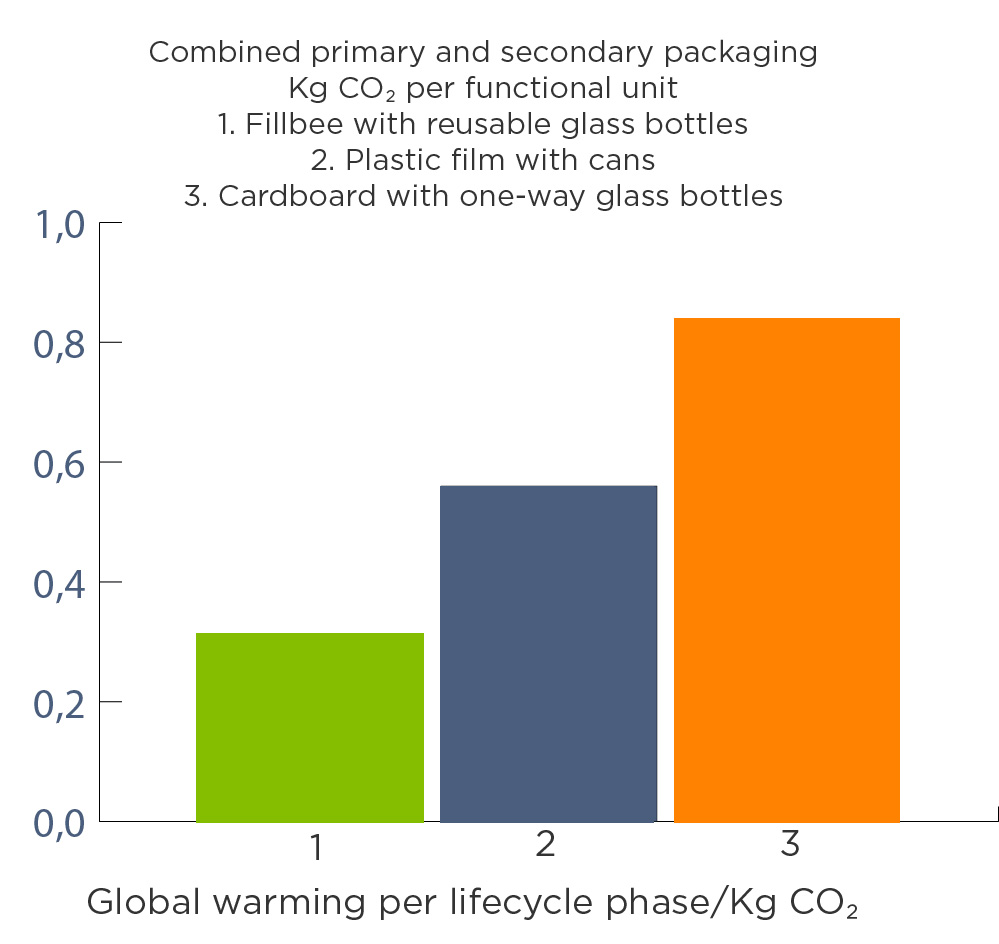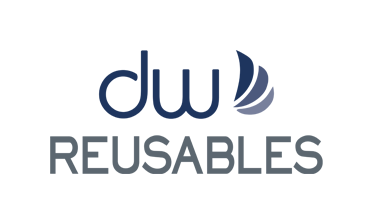
A new study has shown that the recently launched Fillbee® reusable system for beverages generates around 46% less CO2 compared to aluminium cans with plastic wrap, and 64% less CO2 compared to single use glass with cardboard.
A Sustainable Development Master student at the Copernicus Institute for Sustainable Development at Utrecht University compared for his thesis the primary and secondary packaging of three common, real-world cases: a Fillbee used in combination with reusable glass bottles, aluminium cans wrapped in plastic film and cardboard packs with one-way glass bottles.
“We are very happy with the results. They are exactly what we wanted to deliver for our customers in the beverage industry. Fillbee is a reusable 6-pack without the environmental hangover of other packaging options,” said Paul Baeyens, CEO of DW Reusables.
The Fillbee with reusable glass bottles generated significantly less CO2 than conventional packaging – 46% less CO2 than aluminium cans with plastic wrap and 64% less CO2 than single use glass with carboard. The Life Cycle Assessment also showed it outperformed single-use packaging on sustainability criteria including water use, landfill and energy use.
Results were measured per life cycle stage (manufacturing, use and disposal stage) per functional unit in accordance with the requirements of ISO 14044. The selected functional unit was carrying, containing and protecting 1,8l of beverage, while maintaining the quality of the beverage.

Accelerating to a Low Carbon World with Reusable Beverage Packaging
“Fillbees are reusable, returnable, brandable and fully recyclable packaging options that deliver incredible benefits for brands, retailers, consumers, and the planet,” Baeyens continued. “Combined with reusable glass bottles, they deliver a low carbon, zero-waste option while maintaining affordability, improving convenience and closing the loop to ensure a circular life cycle.”
As more retailers commit to science-based emissions reductions programmes in line with the Paris Agreement and the EU’s 2030 and 2050 climate targets there will be greater scrutiny than ever before on the carbon footprint of packaging.
“Fillbee is the perfect choice for breweries looking for a market-ready solution to reduce their scope 3 emissions,” Baeyens concluded.
Furthermore, the carbon footprint of the Fillbee is actually 65% lower than the figures in the report thanks to DW Reusables commitment to using green, renewable electricity making the environmental benefits even clearer. Those benefits will continue to grow as DW Reusables uses more and more green energy. Already three of the four production facilities in Europe are powered by 100% renewable electricity.
Patricia Megale Coelho, Researcher on Packaging Reuse and Circular Economy commented:
“On top of reducing emissions, the usage of Fillbees could further incentivize consumers to return reusable glass bottles through deposit schemes. Deposit return schemes are of extreme importance since they not only increase reuse, but reduce littering and improve recycling quality.”
ABOUT THE COPERNICUS INSTITUTE OF SUSTAINABLE DEVELOPMENT
For the period 2011 and 2015 Utrecht University’s research in the category ‘Environmental Sciences’ had the greatest impact worldwide according to Times Higher Education. Utrecht’s scientific publications scored higher for citation impact than universities such as Stanford and Harvard.
It is their mission to have a positive impact on the transition to a sustainable society through the development of excellent and relevant knowledge, to influence political and private decisions by communicating their knowledge and by educating the change agents of the future.
